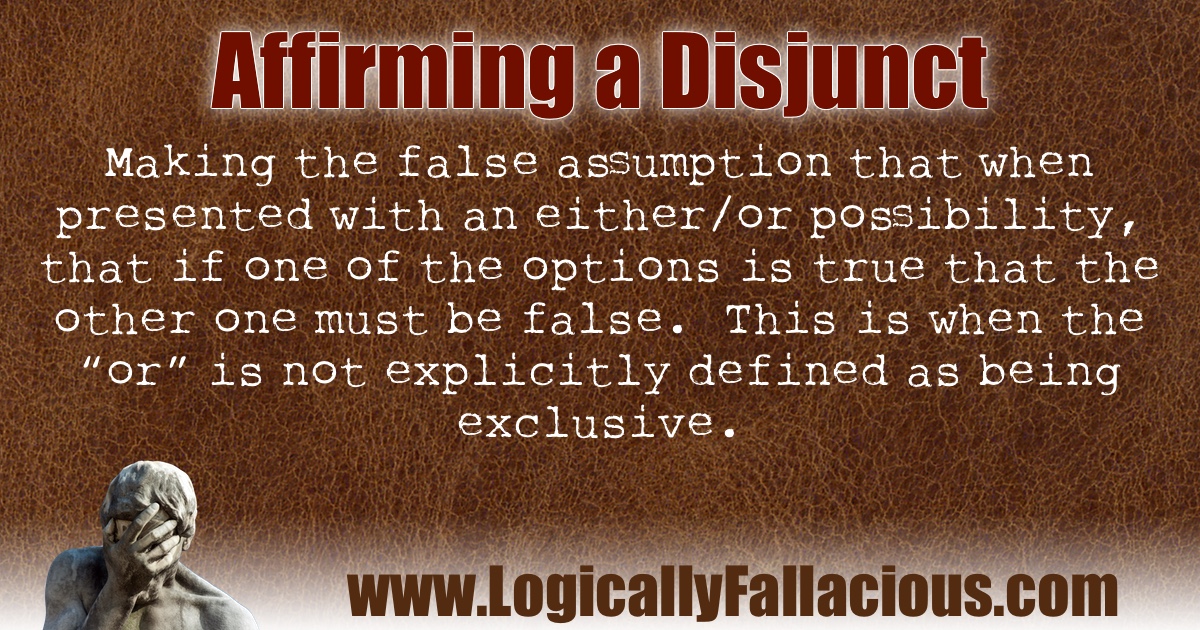(also known as: the fallacy of the alternative disjunct, false exclusionary disjunct, affirming one disjunct, the fallacy of the alternative syllogism, asserting an alternative, improper disjunctive syllogism, fallacy of the disjunctive syllogism)
New Terminology:
Disjunction: A proposition of the "either/or" form, which is true if one or both of its propositional components is true; otherwise, it is false.
Disjunct: One of the propositional components of a disjunction.
Description: Making the false assumption that when presented with an either/or possibility, that if one of the options is true that the other one must be false. This is when the “or” is not explicitly defined as being exclusive.
This fallacy is similar to the unwarranted contrast fallacy.
Logical Forms:
P or Q.
P.
Therefore, not Q.
P or Q.
Q.
Therefore, not P.
Example #1:
I can’t stop eating these chocolates. I really love chocolate, or I seriously lack willpower. I know I really love chocolate; therefore, I cannot lack willpower.
Explanation: Ignoring the possible false dilemma, the fact that one really loves chocolate does not automatically exclude the other possibility of lacking willpower.
Example #2:
I am going to bed or watching TV. I am exhausted, so I will go to bed; therefore, I cannot watch TV.
Explanation: It is logically and physically possible to go to bed and watch TV at the same time, I know that for a fact as I do it just about every night. The “or” does not logically exclude the option that is not chosen.
Exception: If the choices are mutually exclusive (either by necessity or indicated by the word "either"), then it can be deduced that the other choice must be false. Again, we are working under the assumption that one of the choices we are given represents the truth.
Today is either Monday or Sunday. It is Monday. Therefore, it is not Sunday.
In formal logic, the above is referred to as a valid disjunctive syllogism.
If you are thinking, “But it can be both Monday and Sunday if we are talking about two different time zones,” then give your self three points for being clever, then subtract four points for missing the whole point of the fallacy.

References:
Kilgore, W. J. (1979). An introductory logic. Holt, Rinehart and Winston.